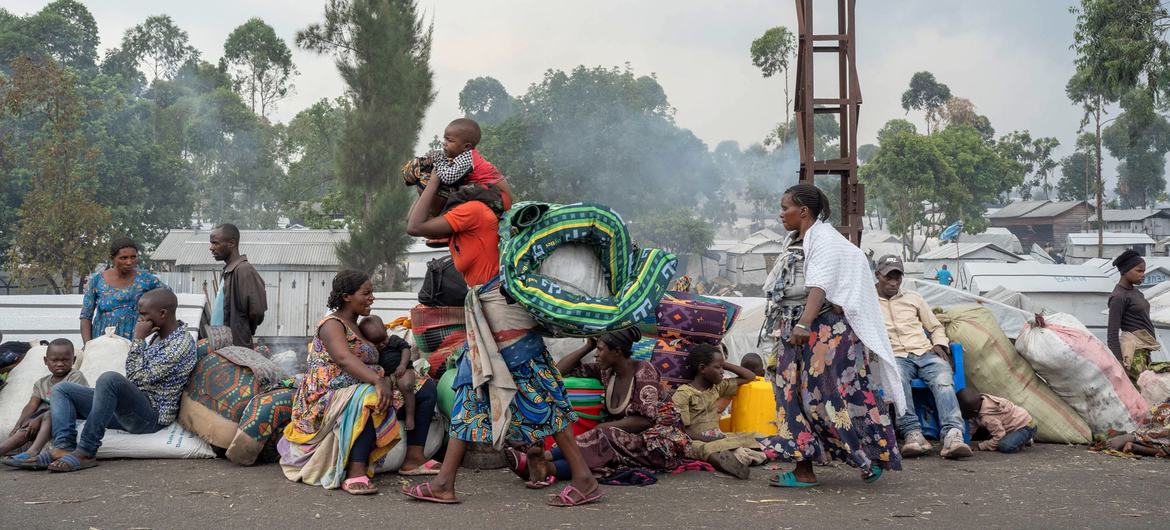FEATURED
Thousands Displaced Amid Ongoing Flood in Eastern DR Congo

Recent severe flooding caused by torrential rains has displaced nearly 10,000 people in Tanganyika province, compounding an already dire humanitarian crisis in the eastern Democratic Republic of the Congo (DRC), the United Nations refugee agency (UNHCR) reported on Tuesday.
The Rugumba River, swollen by torrential downpours, overflowed its banks late last week, submerging vast swaths of Kalemie and Nyunzu territories. The flood destroyed homes, schools, health facilities, and farmland, leaving thousands of residents homeless and without means of survival.
Crops such as cassava, maize, and peanuts, which are key staples for local communities, have been wiped out, exacerbating a food insecurity crisis that already affects millions across the conflict-plagued region.
Furthermore, stagnant and contaminated floodwaters are raising concerns over the risk of disease outbreaks, with reported cholera cases in Tanganyika already six times higher than during the same period last year.
“Families have lost everything,” said Eujin Byun, spokesperson for UNHCR.
“The flooding has hit a community already under severe strain, many of whom were already displaced by ongoing violence”, she told journalists in Geneva.
Since the beginning of the year, Tanganyika has taken in approximately 50,000 internally displaced people (IDPs) fleeing armed conflict in neighboring South Kivu province. Many of those who had sought refuge in churches, schools, or with host families are now displaced once again, with their shelters damaged or destroyed by the rising waters.
Adding to the crisis is a growing public health threat. Stagnant and contaminated floodwaters have heightened fears of disease outbreaks, particularly cholera. Health authorities report that Tanganyika has seen cholera cases soar to six times the number recorded during the same period last year.
“This is a ‘double crisis’ for the Congolese people, devastating weather shocks on top of relentless conflict and mass displacement,” Byun emphasized.
Eastern DRC, including Tanganyika, South Kivu, North Kivu, and Ituri provinces, remains one of the world’s most neglected and underfunded humanitarian emergencies. According to UN figures, over 2.3 million people in these provinces face threats of violence and acute hunger.
Efforts to provide emergency assistance are underway, with UNHCR and its partners distributing tents, clean drinking water, food supplies, and medical aid. However, officials warn that a critical funding shortfall is hampering the humanitarian response. So far, only 20 percent of the required funds for UNHCR’s DRC operations have been received.
At the same time, Congolese refugees continue to cross the border to neighboring countries in search of safety. Nearly 120,000 people have so far arrived in Burundi, Tanzania and Uganda, with more than 5,500 entering Uganda over the past week.
“This trend highlights the urgent need for increased support in both host countries and return areas to address the challenges faced by returnees and refugees in neighboring countries,” said Ms. Byun.
She stressed the need for a coordinated and robust humanitarian response but noted that UNHCR has only received 20 per cent of the funding required for its operations in the DRC.
“The people of the DRC are in dire need of aid, and without timely and adequate intervention, the consequences of this tragic ‘double crisis’ will only deepen,” she warned.









